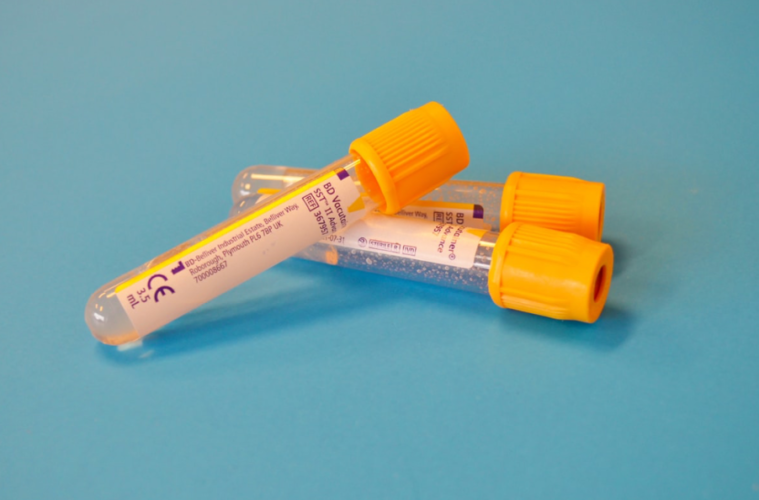*Brand Partner Content*
Once cannabis (hemp) consumption was made legal in all 50 U.S. states through the 2018 Farm Bill, many consumers started having concerns regarding whether it would come back to haunt them in the form of a drug report.
In 2018, President Trump signed a bill extending agriculture and nutritional policy in the United States for an additional 5 years. This bill is usually quite important to all the farmers and those working within the agricultural sectors. However, this time the bill included hemp and cannabidiol which had always been considered a controversial addition. Though this was mainly to help farmers generate profits, many producers are now looking to bring about innovative products that might just change the game entirely.
Regardless of its legalization, there are certain rules and restrictions that producers as well as consumers must follow. Any hemp products being sold must comply with the legally permitted THC standards, that is, limiting THC levels to 0.3% or less. Anything more than this amount might no longer classify a product as “hemp-based” and could lead to incriminating charges. Additionally, the FDA announced that CBD is still considered a drug and should not be added to food or health products. Any addition without FDA approval might result in hefty legal indictments.
So, in trying to keep with the law and trying to stay out of trouble, one might have many questions. The one that concerns many is, will Delta-8 THC show up on a drug test?
The answer to this question is: yes! Though CBD products have been legalized in many parts of the world and numerous companies are aiming to ease their drug test policies, it is important to know that cannabinoids may lead to positive results on a drug test. Though there isn’t an exclusive Delta-8 THC drug test, you could possibly fail a regular one if you consume it.
What is Delta 8 THC and is it different from regular THC?
THC stands for tetrahydrocannabinol and is generally known for its psychoactive characteristics. Marijuana contains 30% THC (delta-9-thc) which is why it has that affect. Other hemp products only contain traces of (delta-9-THC); Until recently hemp products only contained cbd and small traces of delta 9. A legal loophole allows retailers to legally sell you delta 8 thc which is psychoactive and a little less potent than delta 9 thc.
As cannabis became legal, many people started wondering if hemp is safe to consume. Especially with new variations, such as Delta 8 THC, there is tons of speculation. However, many producers have already started selling CBD products containing this composite.
But isn’t THC illegal? Well, not really. Some variations of THC, such as Delta 9 that contains a psychoactive compound, are. Delta 8 THC, on the other hand, is a diluted version of it and doesn’t have the same affect. When derived from hemp, this variation of THC is legal.
So, can it lead to failing a drug test?
Although legal in many countries, consumers are still quite hesitant when it comes to the validities of it. In terms of your company, the employer could request on of the following tests:
- Urinalysis: This method is the only common federally approved method of testing.
- THC Saliva Test: This can detect recent use of marijuana or THC passing your system within the last 30 days.
- Hair Follicle Drug Test: This method is quite uncommon but if tested, it can catch traces of THC from 90 days prior to the test.
A common misconception is that drug tests look for THC in your body. When in reality they only detect byproducts that suggest use. But this is not always accurate and false positives are commonplace. When using Delta 8 THC, traces of Delta 9 might be found since they consist of similar compounds.
How to avoid testing positive for THC?
As the Delta 8 and 9 THC contain similar elements and byproducts will still be found regardless, there are certain measures you can take to avoid testing positive.
Since they both contain the same byproducts, they would naturally need the same amount of time before they can clear out the THC metabolites from your body. For occasional marijuana users, one should test after 1-5 days. For regular smokers, the test should be taken after 1-3 weeks. For heavy smokers, it takes 4-6 weeks to get rid of all metabolites. Make sure to take tests accordingly.
Another way to speed up the process is to make sure your general diet is healthy and full of nutrition. This will help speed up your metabolism and get rid of byproducts at a faster rate.
If your employer suggests a saliva test, then Delta 8 THC consumers can pass it if they take the test 1-5 days after consumption.
To summarize, yes, Delta 8 THC can show up on a drug test but that doesn’t necessarily mean that it’s 100% accurate. It might also result in false positives if you inhale any smoke while being around other smokers, it could also be a part of certain medications you take or the food you eat. The important thing to remember is that you’re not breaking any laws by consuming Delta 8 THC, its permitted and free to use by any who may choose to. If Delta 8 THC is part of your diet, whether or not you smoke marijuana, be sure to speak with your employer before screening to avoid any hassle later.
Advertising disclosure: We may receive compensation for some of the links in our stories. Thank you for supporting LA Weekly and our advertisers.

